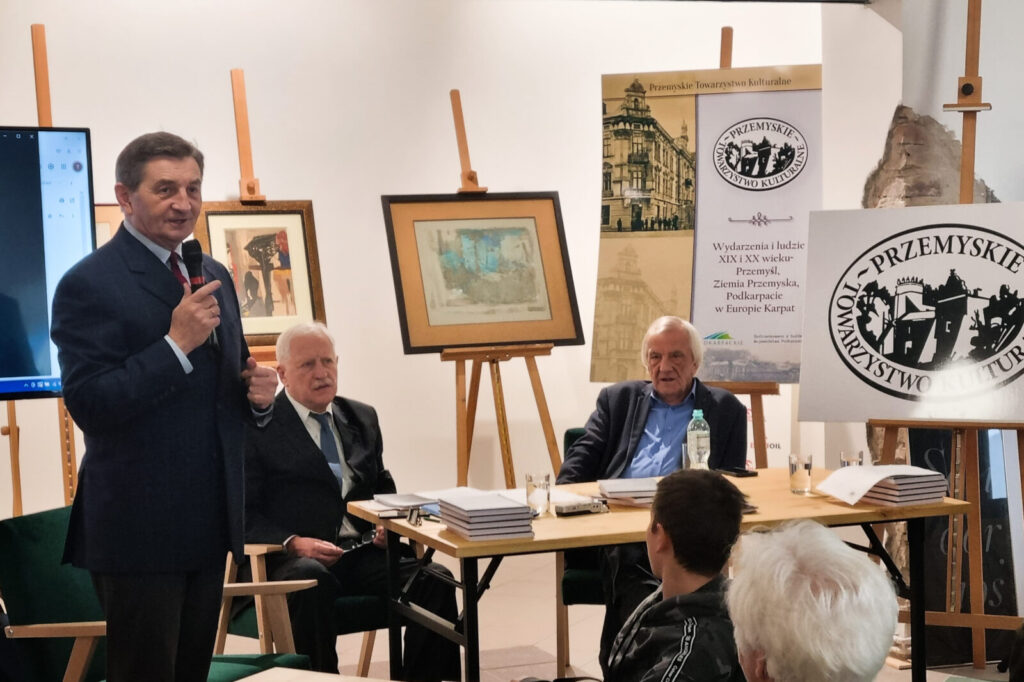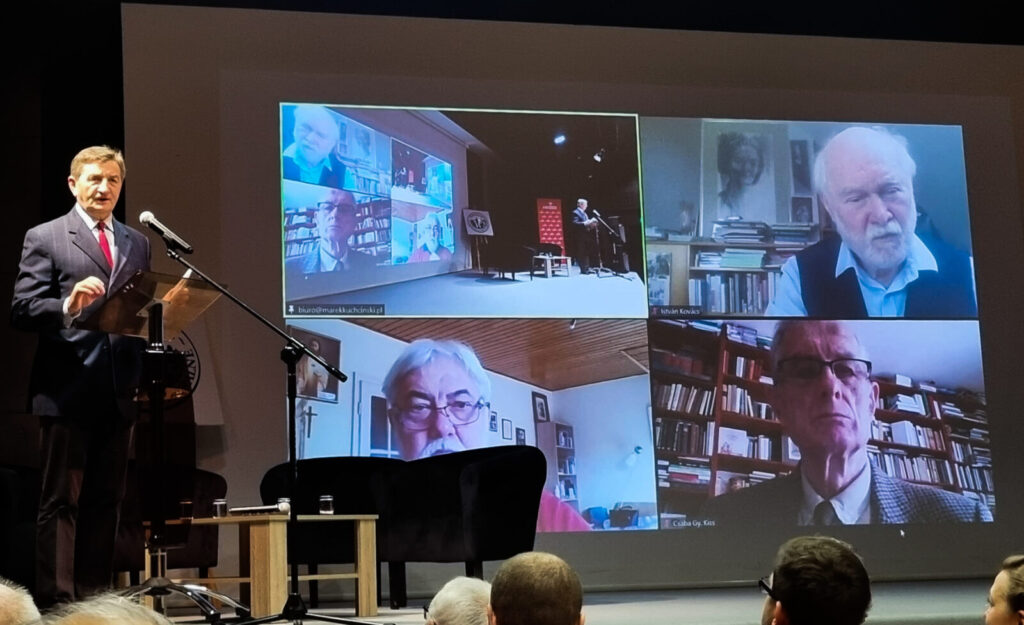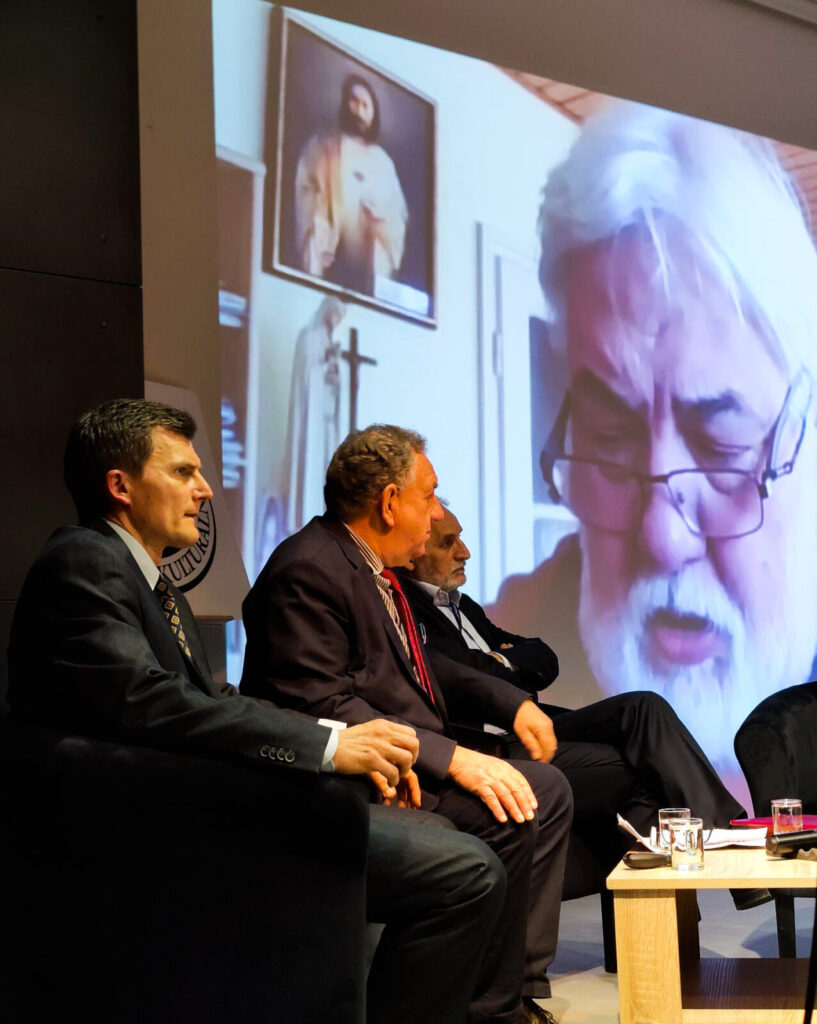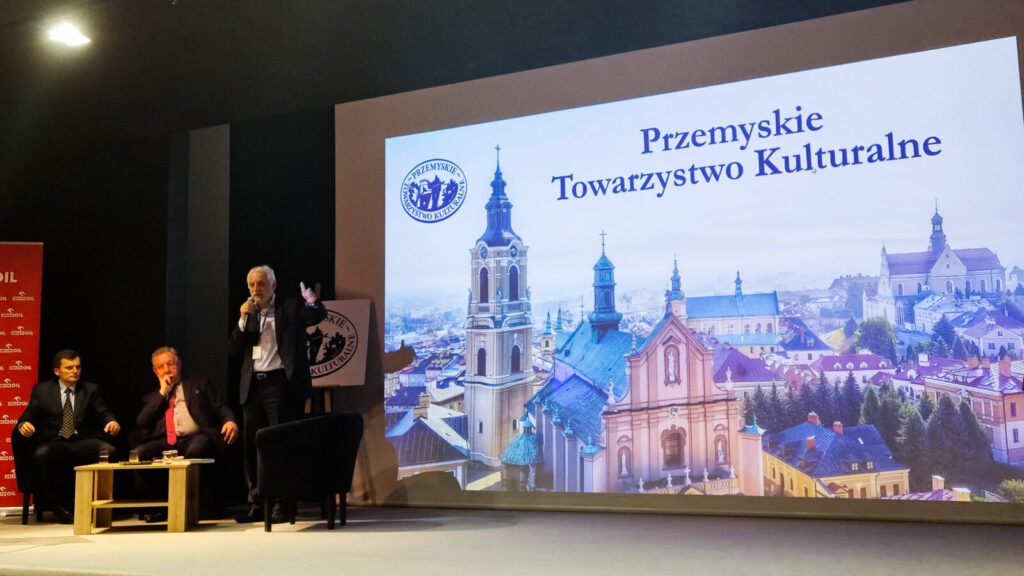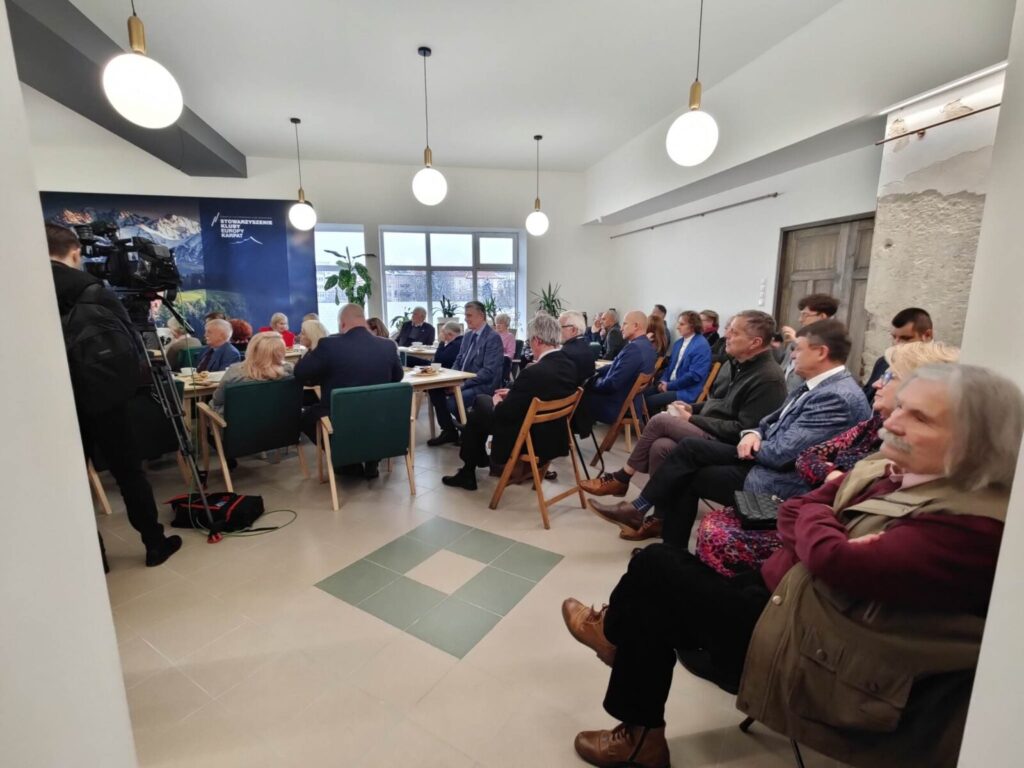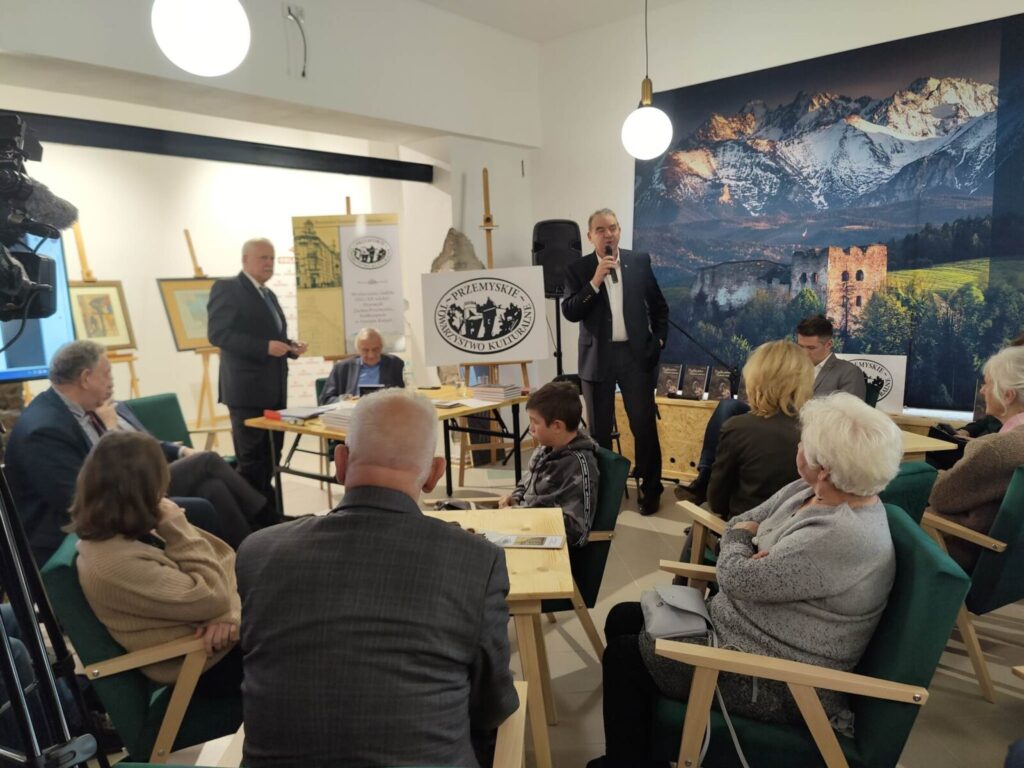On November 19, a conference organized by the Przemyśl Cultural Society took place in Przemyśl. "Events and People of the Nineteenth and Twentieth Centuries - Przemyśl, the Przemysl Land, and the Subcarpathian Region in the Carpathian Europe". dedicated to Polish-Hungarian relations in the Przemyśl area and to education and schooling between Lviv and Krakow.
Originator of the meetings, head of the Prime Minister's Office Marek Kuchcinski, He noted that this is the seventh and final conference in the series. - We invite outstanding people who have an impact on public life in our country today, and more broadly, we reach into the past, but with a view to drawing wisdom for the future, Kuchcinski said. - Looking from the perspective of centuries, Przemyśl is a sentimental center for many nations and cultures of Central Europe, we decided to end this cycle with the participation of our friends the Hungarians, the former Speaker added. He also announced that in the government, following in the footsteps of Hungarians training in Polish, it has been decided to undertake the training of several dozen government officials in Hungarian. During the second part of the meeting, which took place at the new headquarters of the PTK, Marek Kuchcinski recalled that this was also the former headquarters of the Society and the first of the Przemyśl Civic Committee, as well as the room that was received at the time of the breakthrough after the Empik club. - It was here that Jaroslaw Kaczynski hosted the founding meeting. History has come full circle, but we don't just want to reminisce, we also want to draw wisdom from it. We are guided by a concern for our roots, and not just family roots, but history, the history of Poland and our own homelands, and these histories are very turbulent and difficult, but at the same time show excellent heroes heroic deeds of whole groups of people, as we were talking here about military units," said the head of the KPRM.
During the first panel: "Participation of Hungarians in the social, political and cultural life of the Przemyśl area (19th - 20th centuries). Przemyśl - a city of many cultures. Daily life in former Przemysl". With the participation of the speakers: Prof. István Kovács, Prof. Csaba György Kiss, Dr. Imre Molnár, Prof. Jan Draus, Dr. Lucjan Fac and Dr. Tomasz Pomykacz emphasized that we can treat Przemyśl as a Visegrad common memorial. It is a place where Hungarian soldiers rest - 60 percent of the Przemyśl Fortress was made up of Hungarian units, and it was here that common life was vibrant, literature was published, newspapers, in German, Hungarian and Polish, where, in addition to current information, historical articles, news from abroad and poems were published, including those of Géza Gyóni, who was taken prisoner and died in Russia. Services were held for Hungarians in the garrison church, cultural life developed, an orchestra played, and important railroads crossed. Przemysl still exists in the Hungarian consciousness, tours are still organized along the trail of WWI cemeteries to make the youngest generations aware and to preserve the memory of their ancestors, especially since the tradition of WWI was forgotten under communism.
Polish-Hungarian relations are presented in great detail by Hungarian historian Prof. Lajos Szádeczky Kardoss, whose profile was introduced to us by Prof. Imre Molnar. He describes the facts of the destruction, devastation and looting, the havoc wreaked by the Russians, which he emphasizes with concrete examples, such as the fact that of the 24,000 inhabitants of Yaroslavl, only 2-3 thousand people remained during the 8 months of the "Russian occupation."
At the same time, while presenting the situations in question, he does not shy away from confronting questions about the Polish fate: "Now a Pole can say about himself what a Kuruc soldier once said: the native land is plowed with blood... But what will the future bring after this huge hecatomb? For now, the Pole rightly mourns the state of his country. The storm of war has ravaged his homeland, the enemy has not spared his villages, his homes. Will there be a resurrection here, and if so, what will it be?" And he continues: "If there is a recovery of the former Polish lands from the Russians, it will be impossible to evade answering this question: what will be the future fate of Poland? Because the historical rights of the Poles must be taken into account in the final post-war settlement."
Szádeczky-Kardos rightly writes that the current world war had to come so that the Polish nation could once again make a vital sign about itself on the stage of world history. The most fierce battles are being fought on Polish soil, and desperate Polish warriors are fighting for the future of their country in the ranks of our world-renowned defenders. They fight with deadly courage, their lips singing the national song from the Napoleonic wars: "Poland has not yet perished...".
Recognizing this courage and the fact that after the Spring of Nations, Poles and Hungarians are again fighting together for freedom, a conviction and confession is born in him: Let us hope that the end of the war will bring a new life to the Polish nation, the Polish kingdom, one for which their national anthem begs: "Deign to return to us a free homeland, O Lord...".
He ends his book with the following sigh: "May God make the coming day of peace after victorious battles shine in the sky of a new, wonderful Hungary and a free Poland. How timely is this wish and at the same time a task for every generation of Poles and Hungarians."
Professor Jan Draus recalled that the part of the Commonwealth with Lviv and Przemyśl was under the partition of the Austrian monarchy, which became Austro-Hungarian under the Habsburgs in 1867. Since gaining autonomy, Przemyśl began a tumultuous development. It was a city where the profession of clerks and teachers prevailed. Many important figures emerged from the schools during the period of Galician autonomy, who, according to the professor, should be saved from oblivion, such as Prof. Henryk Jordan, Wladyslaw Tarnawski, Kazimierz Kolbuszewski, Tymon Terlecki, Kazimierz Klink, Moses Shorr, Marian Zimmermann, Marian Stroinski, Herman Lieberman, Jaroslaw Rodnicki, Adam Sapieha.
The second panel, featuring Deputy Speaker of the Sejm Prof. Dr. Ryszard Terlecki and Dr. Jan Musial, was titled: "Between Lviv and Krakow. Education and Schooling of Przemyśl - from the Jesuit College to PWSW in Przemyśl". It discusses the history of education, largely owing its development to the Church - the Jesuit and Piarist orders - and the subsequent history, including the dramatic fate of professors at the universities of Krakow and Lviv,the death of prominent scholars at the hands of the Germans in Lviv, or Krakow professors caught in a trap during World War II, resulting in a concentration camp, as well as further persecution by Stalinist authorities, arrests and careers subordinated to the system.
During the last point of the meeting - the promotion of Dr. Jan Musiał's book "Cursed Century - Wonderful Century. On the compensatory aspects of nineteenth-century Polish literature" - The author drew attention to the problem of half-truths and narratives obscuring the truth, which is present in the public space. He stressed that in the book he wants to return to the thesis that it is worth strengthening oneself in spirit, that it is worth building one's own and the community's identity on strengthened spirituality. He noted that the book follows three tracks: historical and literary, relating to types of literary genres and psychoanalytical.
